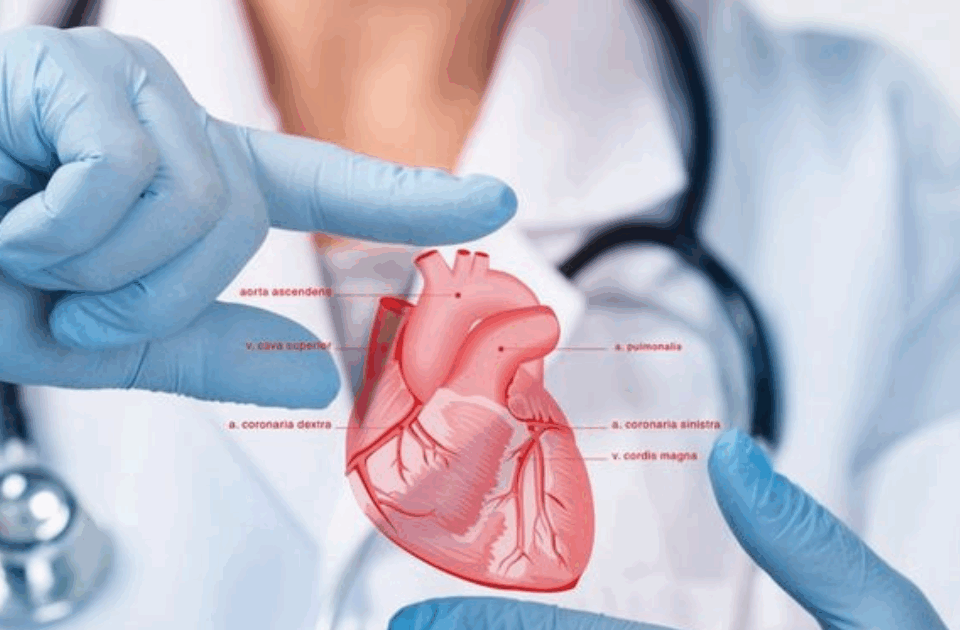
What to Expect from Cardiac Surgery at Novocare International Hospital, Sargodha
September 12, 2025
The Importance of Regular Heart Check-ups: A Guide to Novocare’s Cardiology Services
September 12, 2025Introduction
Heart disease is the leading cause of death globally, affecting millions of men and women each year. Prevention is always better than treatment, and Novocare Hospital’s cardiologists emphasize proactive measures to protect cardiovascular health.
This guide shares evidence-based tips and insights for preventing heart disease, combining medical expertise with practical lifestyle recommendations. From dietary changes to routine screenings, these strategies help individuals maintain healthy hearts and reduce the risk of life-threatening conditions.
Understanding Heart Disease
Heart disease refers to a range of conditions affecting the heart and blood vessels, including:
- Coronary artery disease (CAD) – narrowing of arteries due to plaque buildup
- Arrhythmias – irregular heartbeats
- Heart failure – inability of the heart to pump blood effectively
- Heart valve disease – malfunction of one or more heart valves
Major Risk Factors:
| Risk Factor | Impact on Heart Health |
|---|---|
| High blood pressure (Hypertension) | Increases strain on heart and arteries |
| High cholesterol | Leads to plaque buildup and artery narrowing |
| Diabetes | Damages blood vessels and accelerates heart disease risk |
| Obesity | Contributes to hypertension, diabetes, and CAD |
| Smoking | Damages arteries and reduces oxygen in blood |
| Physical inactivity | Weakens heart muscle and reduces circulation |
| Unhealthy diet | High fat, sugar, and salt increase heart disease risk |
| Stress | Elevates blood pressure and triggers unhealthy habits |
Understanding these risks allows patients to take targeted steps to prevent heart disease effectively.
Top Lifestyle Tips from Novocare Cardiologists
1. Eat a Heart-Healthy Diet
Nutrition plays a crucial role in heart health. Key recommendations include:
| Food Group | Heart-Healthy Tips |
|---|---|
| Fruits & Vegetables | Include at least 5 servings per day |
| Whole Grains | Oats, brown rice, quinoa for fiber and stable blood sugar |
| Lean Proteins | Fish, poultry, legumes; limit red meat |
| Healthy Fats | Olive oil, avocado, nuts; avoid trans fats |
| Limit Salt & Sugar | Reduce processed foods and sugary beverages |
Novocare Insight: A diet rich in antioxidants and fiber reduces cholesterol and inflammation, lowering cardiovascular risk.
2. Maintain a Healthy Weight
Excess weight increases strain on the heart and blood vessels.
Tips:
- Aim for a BMI between 18.5–24.9
- Track calories and portion sizes
- Combine diet with regular physical activity
Novocare Insight: Even a 5–10% weight loss can significantly reduce heart disease risk in overweight individuals.
3. Exercise Regularly
Physical activity strengthens the heart and improves circulation.
| Type of Exercise | Recommendation |
|---|---|
| Aerobic (walking, swimming, cycling) | 150 min/week of moderate-intensity exercise |
| Strength Training | 2–3 times/week to build muscle and support metabolism |
| Flexibility & Balance | Yoga, stretching to reduce stress and improve mobility |
Novocare Insight: Consistency is more important than intensity. Small daily changes, like brisk walking, make a difference.
4. Quit Smoking and Limit Alcohol
- Smoking: Stops or reduces to eliminate damage to arteries and oxygen transport.
- Alcohol: Moderate consumption only (≤1 drink/day for women, ≤2 for men).
Novocare Insight: Quitting smoking dramatically improves heart health within months, reducing risk of heart attack and stroke.
5. Manage Stress
Chronic stress can elevate blood pressure and trigger unhealthy habits.
Stress Management Techniques:
- Meditation or mindfulness practice
- Deep breathing exercises
- Regular physical activity
- Counseling or therapy if needed
Novocare Insight: Stress management is essential to prevent hypertension and reduce overall cardiovascular risk.
6. Monitor Blood Pressure and Cholesterol
Regular screenings detect issues before they become severe.
| Screening | Frequency |
|---|---|
| Blood Pressure | At least once a year or more if elevated |
| Cholesterol Levels | Every 4–6 years (more often if risk factors exist) |
| Blood Sugar/Diabetes Screening | Annually or as recommended |
| Heart Health Check-ups | Every 1–2 years, more often if high risk |
Novocare Insight: Early detection of hypertension or high cholesterol enables interventions that prevent serious heart disease.
7. Sleep Well
Adequate sleep is vital for heart health. Adults should aim for 7–9 hours per night.
Tips:
- Maintain a consistent sleep schedule
- Avoid screens before bedtime
- Create a relaxing sleep environment
Novocare Insight: Poor sleep is linked to high blood pressure, obesity, and increased risk of heart disease.
8. Take Prescribed Medications as Directed
For patients with existing risk factors:
- Blood pressure medications
- Cholesterol-lowering drugs (statins)
- Blood-thinning agents if prescribed
Novocare Insight: Adherence to prescribed medications is crucial to maintain cardiovascular health and prevent complications.
Preventive Cardiology Services at Novocare Hospital
Novocare provides comprehensive preventive cardiology services, including:
| Service | Purpose |
|---|---|
| Cardiac Risk Assessment | Evaluate personal risk for heart disease |
| ECG & Stress Tests | Detect arrhythmias or ischemia |
| Echocardiography | Assess heart structure and function |
| Lipid & Blood Sugar Panels | Monitor cholesterol and glucose levels |
| Lifestyle Counseling | Personalized diet, exercise, and stress management plans |
Novocare Insight: Combining medical evaluation with lifestyle counseling ensures optimal preventive care.
Frequently Asked Questions (FAQs)
1. Can heart disease be completely prevented?
While not all cases are preventable, most cardiovascular diseases can be significantly reduced through lifestyle modifications and regular screenings.
2. How often should I see a cardiologist for prevention?
Adults should have a cardiac check-up at least every 1–2 years, more often if risk factors are present.
3. Does diet alone prevent heart disease?
A healthy diet is essential but works best alongside exercise, stress management, and regular medical monitoring.
4. How quickly can lifestyle changes improve heart health?
Some benefits, like lower blood pressure, can be seen within weeks; long-term risk reduction requires sustained lifestyle changes.
5. Are cholesterol-lowering medications safe?
Yes, when prescribed by a doctor and monitored for side effects.
6. Can exercise prevent a heart attack?
Regular physical activity lowers risk factors but cannot completely eliminate the possibility, especially in high-risk patients.
7. What role does stress play in heart disease?
Chronic stress contributes to hypertension and unhealthy habits, increasing heart disease risk.
8. Is it too late to start preventive measures after age 50?
It’s never too late; lifestyle improvements and medical interventions benefit heart health at any age.
9. How can I monitor my heart health at home?
Home blood pressure monitors and tracking cholesterol, glucose, weight, and physical activity are useful for ongoing monitoring.
10. Does Novocare offer specialized programs for high-risk patients?
Yes, Novocare provides personalized programs including diet, exercise, medications, and counseling.
11. How important is sleep in heart disease prevention?
Critical—insufficient sleep increases hypertension, weight gain, and heart disease risk.
12. Are there any supplements recommended for heart health?
Omega-3 fatty acids, certain vitamins, and minerals may help, but always consult a cardiologist before starting any supplement.
13. Can women benefit from these tips as much as men?
Absolutely; prevention strategies apply to all adults regardless of gender.
14. How soon should high-risk patients start preventive measures?
As early as possible—ideally in young adulthood or upon diagnosis of risk factors.
15. Can heart disease prevention reduce healthcare costs?
Yes, reducing complications and hospitalizations through prevention saves significant healthcare expenses.
Expert Conclusion from Novocare Cardiologists
Prevention is the cornerstone of cardiovascular health. At Novocare Hospital, a combination of lifestyle strategies, early screenings, and expert medical guidance empowers patients to reduce their risk of heart disease.
From healthy eating and regular exercise to stress management and medication adherence, these proactive measures are supported by cutting-edge diagnostic tools and personalized care plans. Choosing Novocare ensures that patients receive evidence-based guidance and continuous monitoring for long-term heart health.




